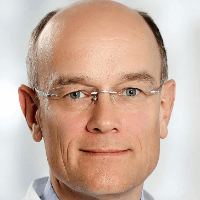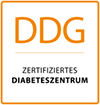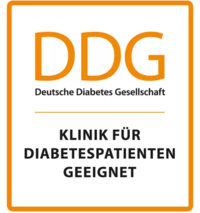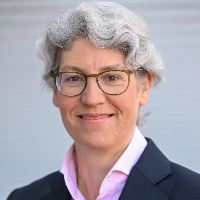Diagnostic of Pancreatic Cancer in Germany
Treatment prices are regulated by national law of the corresponding countries, but can also include additional hospital coefficients. In order to receive the individual cost calculation, please send us the request and medical records.

Department of Gastroenterology, Hepatology and Infectology
The Department of Gastroenterology, Hepatology and Infectology offers the widest range of diagnostic examinations and treatments for patients with diseases of the gastrointestinal tract, liver, biliary tract, as well as infectious diseases. The department operates the specialized Endoscopy Center, which serves for diagnostic and therapeutic procedures. There is also the Laboratory for Functional Gastrointestinal Diagnostics. The modern technical base and the exceptional professionalism of doctors make it possible to guarantee an optimal result for each patient.






Department of Gastroenterology, Hepatology and Infectology
The Department of Gastroenterology, Hepatology and Infectology offers the full range of diagnostics and treatment of diseases of the liver, pancreas, and other organs of the gastrointestinal tract. In addition, of particular interest is the treatment of cancer pathologies of the esophagus, stomach, intestines, pancreas and liver. The department is a supraregional center for the diagnostics, research and treatment of chronic liver diseases and their complications, as well as the certified Infectology Center, within which all types of hepatitis, HIV, and tropical infectious diseases are treated.






Department of Gastroenterology and Hepatology
The Department of Gastroenterology and Hepatology offers the full range of medical services in the areas of its specialization. The department's doctors carry out the prevention, diagnostics, and treatment of diseases of the gastrointestinal tract, including the liver, gallbladder, biliary tract, esophagus, and pancreas. Diagnostic options include ultrasound scans and functional tests, as well as modern endoscopic procedures that allow for making an accurate diagnosis and prescribing effective therapy. As for the treatment, the department offers patients effective drug therapy and many endoscopic interventions. Based on an independent assessment by Newsweek, an American weekly online news magazine, the department is recognized as one of the best in the world at treating gastroenterological diseases. In addition, the department is certified by the German Cancer Society (DKG) in the treatment of gastrointestinal and liver cancers. The medical facility has a high level of trust among patients, and the number of people wishing to receive medical care here is steadily growing every year.






Pancreatic cancer is one of the most dangerous oncological diseases. It has a high mortality rate and is difficult to treat. Most patients do not undergo radical surgery due to the late detection of the tumor. To successfully fight against cancer, it is very important to timely detect this disease. You can be examined for tumors of the digestive system or undergo the targeted diagnostics of pancreatic cancer in one of the German clinics.
Is it possible to diagnose pancreatic cancer early?
In most cases, pancreatic cancer symptoms manifest themselves late. By this time, the tumor becomes large and often inoperable.
You should consult a doctor when the first signs of the disease appear. These may be:
- Obstructive jaundice – yellowing of the skin, light feces, dark urine
- Itchy skin
- Abdominal or back pain
- Weight loss
- Loss of appetite
- Development of blood clots in the legs
All symptoms are non-specific. In addition to pancreatic cancer, they can be found in many other pathologies. However, their manifestation may be an occasion to visit a specialist. When conducting the diagnostics, a doctor can detect a tumor.
With the special tests, it can be detected even earlier. These are:
- Endoscopic ultrasound
- MRI
Typically, these diagnostic procedures can be not used for mass examination of patients who do not have any symptoms. They can be used only in high-risk groups. These include people with certain genetic syndromes.
Imaging methods
In most cases, a pancreatic tumor can be detected using medical imaging methods, such as ultrasound scan, CT, MRI.
Abdominal ultrasound. As a rule, it is the first examination indicated to the patient when pancreatic cancer symptoms appear. This method allows doctors to suspect cancer, but it is not very accurate. Endoscopic ultrasound scan provides more information. It involves the insertion of a sensor into the duodenum, which surrounds the head of the pancreas.
CT scan. It is the main method for detecting pancreatic tumors. It helps to accurately determine the localization of the neoplasm, its size, shape, the presence of metastasis in the nearest lymph nodes, the degree of cancer invasion in the neighboring organs and tissues. The most informative option is multiphase CT scan according to the pancreas protocol. The study involves the use of a large amount of contrast medium. It is administered in a total amount of 70-120 ml, with a speed of 3-4 ml per second. Then the doctor carries out several scans at certain intervals, at different phases of the passage of contrast agent through the vessels. According to the results of the study, blood supply to the tumor, its relationship with the great vessels, neighboring organs and tissues can be described in detail.
MRI. It is an alternative to the CT scan. Nonetheless, the method is less informative, and therefore it is used less often. The special types of MRI can detect pancreatic cancer at an early stage and can be used to examine clinically healthy individuals. To this end, MRI cholangiopancreatography can be used.
Endoscopic diagnostics
The endoscopic diagnostics involves the introduction of an instrument into the gastrointestinal tract. Thus, the doctor can assess the condition of the bile ducts and pancreatic ducts, find out if they are blocked. The possible narrowing or expansion of these ducts can be revealed as well. These tests are used to plan a surgical intervention.
Endoscopic retrograde cholangiopancreatography is mostly performed. A thin tube with a camera is inserted through the mouth into the stomach, and then into the duodenum. When performing the procedure, the doctors can also make an x-ray, a biopsy or stenting of the narrowed duct.
Percutaneous transhepatic cholangiography is less common. This is an invasive procedure. The doctor inserts a needle through the skin of the abdomen into the bile duct and injects a contrast medium. The procedure also involves the x-ray scanning. The doctors can take a biopsy or place a stent. The procedure can be used only in case of insufficient information content of previously performed endoscopic retrograde cholangiopancreatography, or if this study cannot be carried out for some reason.
Biopsy
The biopsy serves for the confirmation of the diagnosis. It can be performed in the following ways:
- Percutaneous biopsy – the doctor inserts a thin needle into the tumor under the guidance of CT or ultrasound
- Endoscopic biopsy – it is performed during endoscopy (insertion of a thin tube through the mouth, esophagus and stomach into the duodenum), the doctor scrapes the tumor cells with an instrument that looks like a brush, or inserts a needle
- Surgical biopsy – it is performed during laparoscopy (is is rarely used, since modern imaging methods allow to fully evaluate the prevalence of the tumor process without invasive procedures)
Some patients do not have a biopsy. Basically, it is not done with small tumors that can be removed. In this case, the doctor performs the operation, and the removed tissue is sent to the laboratory to confirm the malignancy.
Diagnostics in Germany with the Booking health company
You can undergo the highly accurate diagnostics of the pancreatic tumor in Germany. Booking Health helps you organize your trip to this country. We offer the following benefits:
- Selection of the best clinic, which specializes in the diagnostics and treatment of pancreatic cancer and has achieved outstanding success in this field of oncology.
- Reduced cost of diagnostics and therapy up to 50% due to the lack of overpricing and additional coefficients for foreign patients.
- Making an appointment with a doctor on the most suitable dates.
- Preparation of a pancreatic cancer diagnostic program in Germany, taking into account previously performed examinations.
- Establishment of communication directly with the attending physician.
- Monitoring all stages of the diagnostic and therapy program.
- Control of invoicess, return of unspent funds.
- Organization of additional diagnostic or therapeutic procedures.
- Buying and forwarding medicines.
- Communication with the clinic after the diagnostics and treatment of pancreatic cancer.
The Booking Health company guarantees top-class services. Our staff will book airline tickets and a hotel for you, meet you at the German airport and take you to the hospital. Once the diagnostic or treatment program is completed, we will arrange a return transfer.

